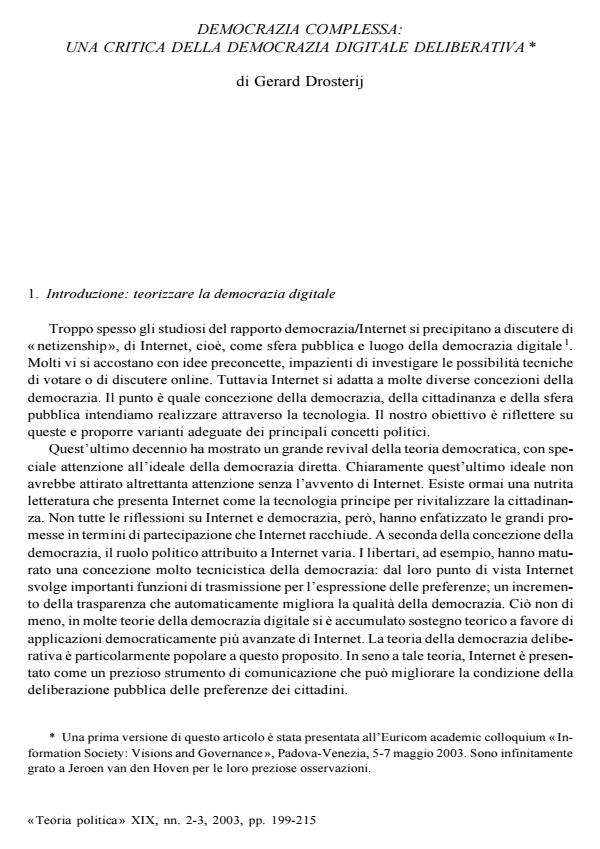Democrazia complessa: una critica della democrazia digitale deliberativa
Journal title TEORIA POLITICA
Author/s Gerard Drosterij
Publishing Year 2004 Issue 2003/2-3
Language Italian Pages 17 P. File size 60 KB
DOI
DOI is like a bar code for intellectual property: to have more infomation
click here
Below, you can see the article first page
If you want to buy this article in PDF format, you can do it, following the instructions to buy download credits

FrancoAngeli is member of Publishers International Linking Association, Inc (PILA), a not-for-profit association which run the CrossRef service enabling links to and from online scholarly content.
The study of the Internet as a potential public sphere, as a place of citizensÕ empowerment, calls for a critical awareness of democratic theory. We have to account for the democratic values we apply to designs of public spheres on the Internet. In the last decade, deliberative democracy has been very popular among scholars of the Internet. In democratic theory, this model is usually contrasted with two other models, i.e., the republican and the liberal. In this paper, I will argue that democratic theorists have systematically neglected a fourth model of democracy. By analyzing Jon ElsterÕs three varieties of political theory and Seyla BenhabibÕs three models of public space, I shall demonstrate this blind spot. Furthermore, I will argue that this blind spot is detrimental in research on the Internet as a public sphere. In its basic values, this fourth model, which I call complex democracy, is diametrically opposed to the deliberative model of democracy. Therefore, in arguing its adequacy, I will provide a substantive critique of deliberative democracy. This seems highly relevant, since theories of digital democracy are biased towards deliberative democracy. I conclude by sketching a complex model of digital democracy.
Gerard Drosterij, Democrazia complessa: una critica della democrazia digitale deliberativa in "TEORIA POLITICA" 2-3/2003, pp , DOI: